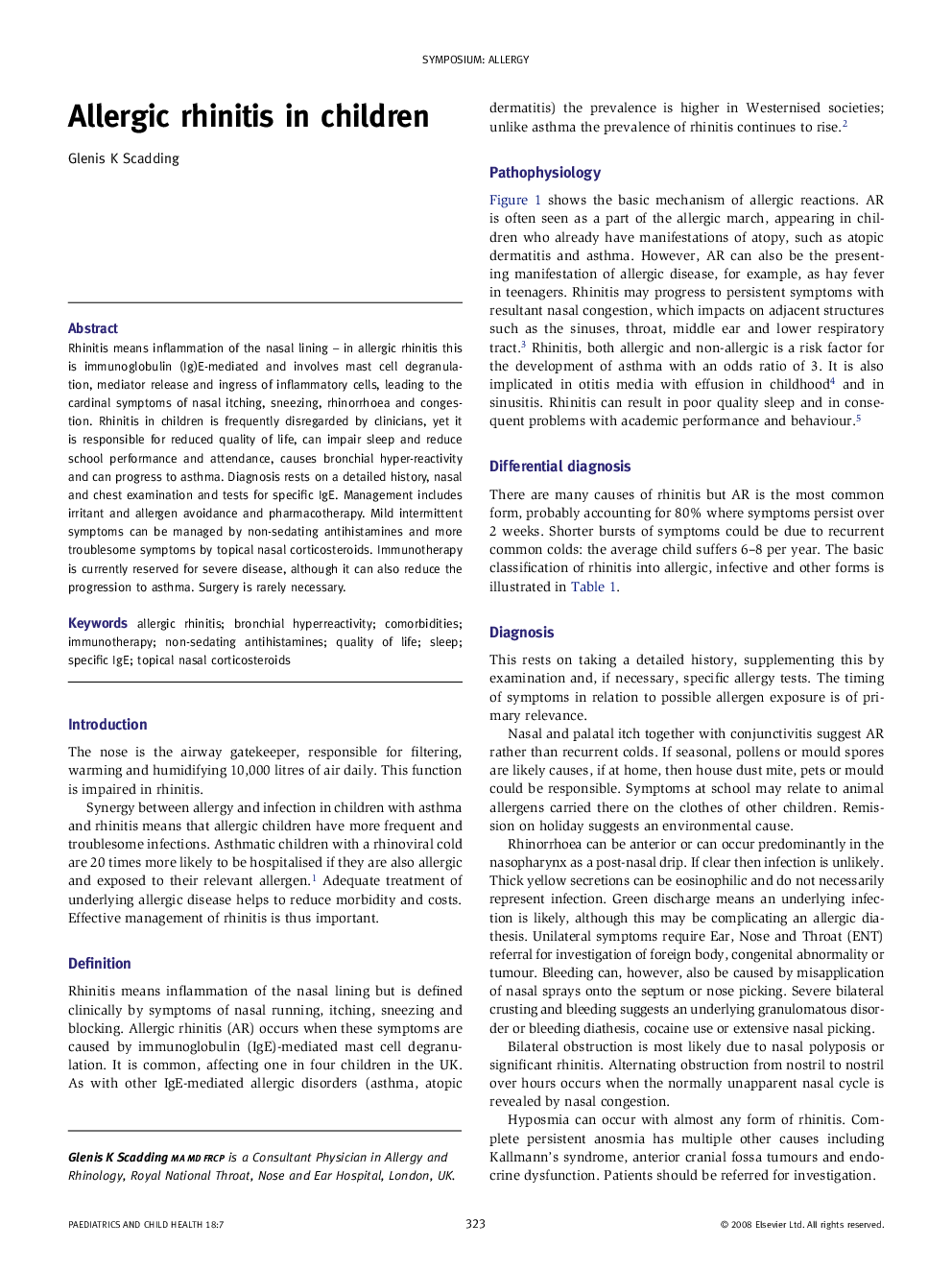| Article ID | Journal | Published Year | Pages | File Type |
|---|---|---|---|---|
| 4172863 | Paediatrics and Child Health | 2008 | 6 Pages |
Rhinitis means inflammation of the nasal lining – in allergic rhinitis this is immunoglobulin (Ig)E-mediated and involves mast cell degranulation, mediator release and ingress of inflammatory cells, leading to the cardinal symptoms of nasal itching, sneezing, rhinorrhoea and congestion. Rhinitis in children is frequently disregarded by clinicians, yet it is responsible for reduced quality of life, can impair sleep and reduce school performance and attendance, causes bronchial hyper-reactivity and can progress to asthma. Diagnosis rests on a detailed history, nasal and chest examination and tests for specific IgE. Management includes irritant and allergen avoidance and pharmacotherapy. Mild intermittent symptoms can be managed by non-sedating antihistamines and more troublesome symptoms by topical nasal corticosteroids. Immunotherapy is currently reserved for severe disease, although it can also reduce the progression to asthma. Surgery is rarely necessary.
